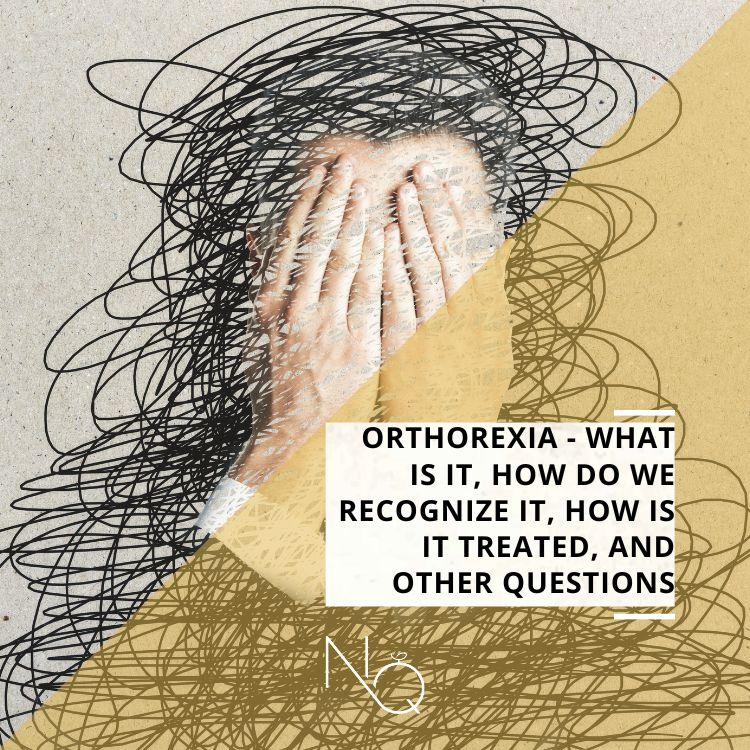What is orthorexia? What do the official organizations say about it? What are the signs and symptoms to recognize it? Are there any effects on health? How is it treated? What is the role of the dietitian in the treatment of orthorexia?
What is orthorexia?
The term "orthorexia" first appeared in 1998 to describe the condition when a person is obsessed with "proper" and "healthy" eating. Showing interest in nutrition quality is normal since nutrition is one of the main factors that affect our health. However, excessive fixation, preoccupation, and concern with this matter can be harmful to the individual.
What do the official guidelines say about orthorexia?
Official organizations do not recognize orthorexia as a specific eating disorder, so there aren't clear diagnostic criteria. Thus, it is unsure whether we can consider it a type of an already existing eating disorder, such as anorexia, or conclude that it is a form of obsessive-compulsive disorder. Some studies report that people with orthorexia also have obsessive-compulsive disorder. Based on the above, it is hard to calculate the prevalence of orthorexia, meaning the percentage of people who have orthorexia in the population.
Signs and symptoms of orthorexia
Some of the signs and symptoms of orthorexia are listed below:
- Compulsive checking of nutrition tables and food nutrition labels.
- Obsessively following pages on Instagram, Twitter, etc. on nutrition and a "healthy lifestyle".
- Experiencing high anxiety levels in cases when "healthy" or "safe" foods are unavailable.
- Increasing concern for the health and quality of ingredients.
- Removing entire food groups from the diet, such as anything containing sugar or all carbohydrates, all dairy, all animal products, all meats, etc.
- Inability to eat food other than those on the narrow list of what the person considers "healthy" or "pure".
- Unusual interest in the quality of food consumed by other people.
- Overthinking and spending hours on what foods an upcoming event might include.
- Body image concerns may or may not be present.
Effects of Orthorexia on Health
Orthorexia has several effects on a person's health. It can lead to restriction of the amount and variety of food and, possibly, to malnutrition. Also, if there is concern about how the body looks, the psychological effects are bigger.
Treatment of orthorexia
So far, there is no specific treatment recommended for orthorexia. As there is no clarification on whether it is a version of anorexia nervosa or obsessive-compulsive disorder or a bit of both, there are no set guidelines. Treatment includes psychotherapy to restore the relationship with food.
The role of the dietitian in the treatment of orthorexia
A properly trained dietitian has a central role in treating any eating disorder. In the case of orthorexia, the dietitian collaborating with other specialists contributes to restoring the relationship with food. That happens in the following ways:
- Provides valid information about foods, their composition, quality, consumption frequency, and action in the body. Thus, one's perception of "healthy eating" can gradually be restored.
- Through appropriate communication with individuals helps in the gradual inclusion of foods that have been excluded because they have been characterized as "unhealthy" or cause anxiety.
- Contributes to the restoration of the person's weight, if this is necessary.




